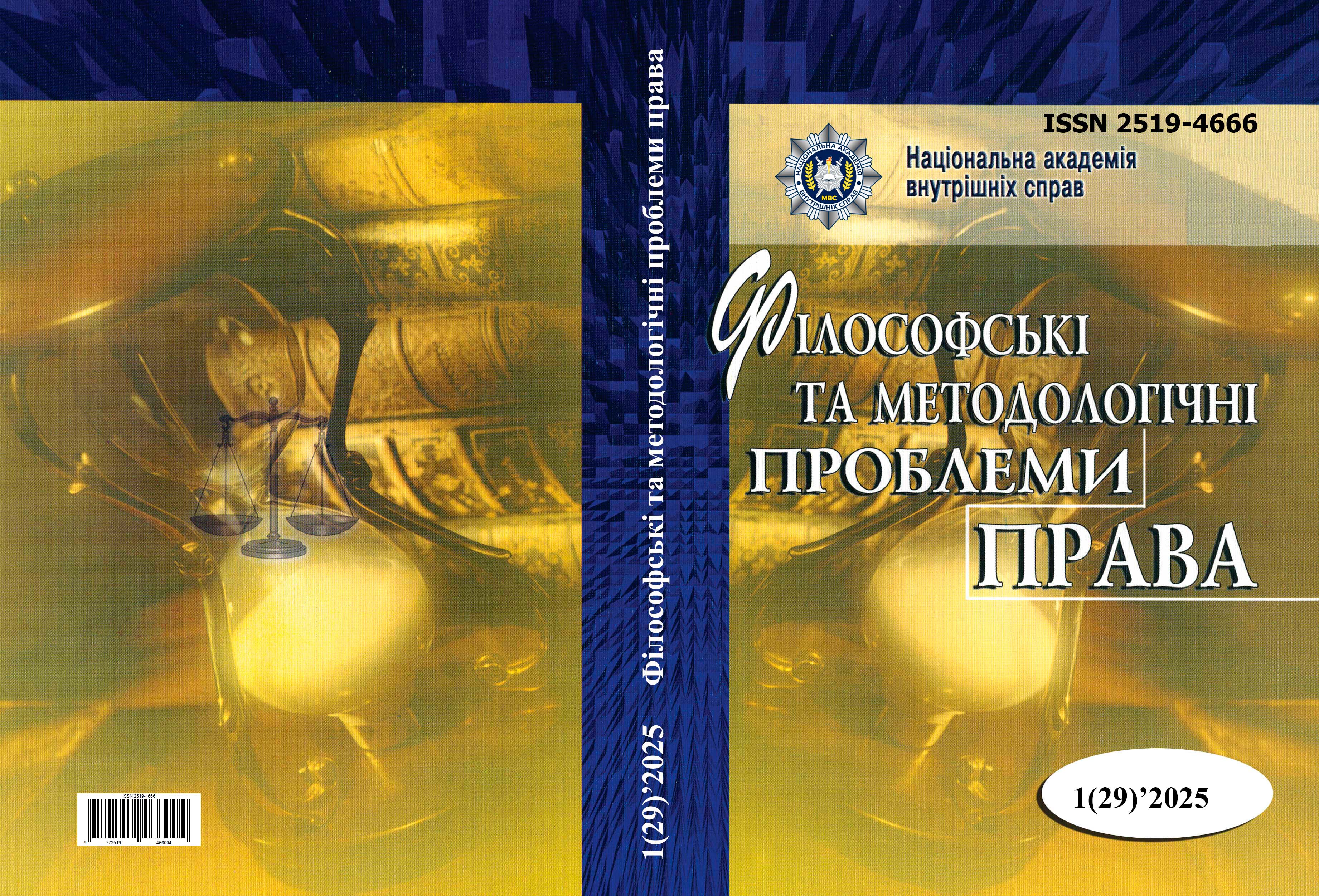The Essence of Crime and Punishment in Classical German Philosophy
Abstract
Abstract. The article examines the ideas of I. Kant, I. G. Fichte, F. V. J. Schelling and G. V. F. Hegel regarding the philosophical understanding of crime and punishment, while distinguishing the spheres of morality and law, which makes it possible to consider the specified categories in the legal space of the state. The author’s appeal to this topic was facilitated by the fact that the philosophical approach is characterized by rationality, reflexivity, integrity and criticality, which contributes to understanding the essence of man, explaining the reasons for his behavior, including criminal. It is emphasized that, being idealists, German philosophers at the same time saw idealism as a threat to the individual and pinned their hopes on the state, which would ensure everyone’s rights, including the right to personal security, and protect a person from the threat coming from another person. This determines the importance and relevance of the problem under study. The purpose of the article: to initiate a scientific discussion on the possibilities of applying the ideas of the classics of German idealism in measures to prevent crimes, deter crime and increase the effectiveness of the educational impact of punishment. Methodological basis: dialectical approach and philosophical categories of cause and effect; phenomenological approach; formal-logical method and system analysis. The author concludes that in classical German philosophy, each of its founders has his own, special role in creating a special conceptual model of crime and punishment. The classics of German philosophy formed a relative (relative) and utilitarian (target) theory, the main essence of which was socially useful results, including the prevention of crimes. In German philosophical idealism, we are approaching an understanding of crime and the criminal that connects it exclusively with the legal sphere and the violation of legal laws established in the sphere of civil society and the rule of law. The purpose of punishment here is no longer in itself, but in the results that should be achieved through punishment. The main statements of this philosophy when understanding the topic of punishment can be formulated as follows: punishment should inevitably follow the crime and at the same time be independent of any considerations, such as the benefit that society could receive from the exploitation of the convicted offender. The practical significance of studying the essence of crime and punishment in classical German philosophy lies in the fact that the methods and methods of influencing people’s behavior proposed by its representatives can be used both to prevent crimes and to prevent criminality and increase the effectiveness of legal education through punishment for a committed offense.
Keywords: freedom; personality; state; law; knowledge; justice; idealism.
Downloads
References
Beade, I. (2023). Criminal law in kant's juridical theory. On the articulation between the retributive and the preventive functions of punishment. Signos Filosoficos, 25(49), 38-63. DOI: 10.24275/sfilo.v25n49.02
Brooks, T. (2018). Hegel on Crime and Punishment. Hegel’s Political Philosophy: On the Normative Significance of Method and System (pp. 202-221). Oxford: Oxford University Press. Retrieved from https://papers.ssrn.com/sol3/papers.cfm?abstract_id=3186131
Fichte, J.G. (1847/1846). Der geschlossene Handelsstaat. Johann Gottlieb Fichtes sämmtliche Werke (Band 3). Berlin. Retrieved from http://www.zeno.org/Philosophie/M/Fichte,+Johann+Gottlieb/ Der+geschlossene+Handelsstaat
Hegel, G.W.F. (1979). Grundlinien der Philosophie des Rechts. Georg Wilhelm Friedrich Hegel: Werke (Band 7). Frankfurt am Main. Retrieved from http://www.zeno.org/Philosophie/M/Hegel,+ Georg+Wilhelm+Friedrich/Grundlinien+der+Philosophie+des+Rechts
James, D. (2020). Crime, contract and humanity: Fichte's theory of punishment. British Journal for the History of Philosophy, 30(4), 1-17. DOI: 10.1080/09608788.2020.1828030
Kant, I. (1922). Kritik der Urteilskraft. Leipzig F. Meiner. Retrieved from https://archive.org/details /kritikderurteils00kantuoft/page/n5/mode/2up
Kant, I. (1947). Grundlagen der Metaphysik der Sitten. Leipzig F. Meiner. Retrieved from https://www.bard.edu/library/pdfs/archives/Kant-Grundlegung_zur_Metaphysik_der_Sitten.pdf
Kant, I. (1977). Die Metaphysik der Sitten. Werke in zwölf Bänden (Band 8). Frankfurt am Main. Retrieved from http://www.zeno.org/Philosophie/M/Kant,+Immanuel/Die+Metaphysik+der+Sitten
Kant, I. (2000). Critique of Practical Reason (I. Burkovsky, Trans). Kyiv: Univers. Retrieved from https://shron1.chtyvo.org.ua/Kant_Immanuel/Krytyka_praktychnoho_rozumu.pdf?
Mitas, S. (2020). Crimen publicum, poena forensis: Reassessing Kant's Theory of Criminal Law, in Line with Contemporary Philosophy of Punishment Debates. Archiv fur Rechts- und Sozialphilosophie, 106(4), 554-562. DOI: 10.25162/arsp-2020-0027
Panafidina, O. (2019). What is so classic about philosophy? Come to the understanding of the classics and the problem of their relevance. Philosophical thought, 1, 74-86. Retrieved from http://jnas.nbuv.gov.ua/article/UJRN-0001006005
Schelling, F.W.J. (1858). Philosophie der Offenbarung. Stuttgart und Augsburg. Retrieved from https://www.odysseetheater.org/ftp/bibliothek/Philosophie/Schelling/Schelling_Die_Philosophie_der%20Offenbarung.pdf
Schelling, F.W.J. (2016). Philosophische Untersuchungen über das Wesen der menschlichen Freiheit und die damit zusammenhängenden Gegenstände. Berlin. Retrieved from https://books.google.ba/ books?id=BPf4BgAAQBAJ&printsec=frontcover#v=onepage&q&f=false
Terletskyi, V. (2021). Research on German classical philosophy at the Institute of Philosophy. Philosophical thought, 4, 38-54. DOI: 10.15407/FD2021.04.038
Yatsenko, О. (2021). The Problem of Sociality in Classical German Philosophy: Between Freedom and Necessity. Innovative Solutions in Modern Science, 2(46). DOI: 10.26886/2414-634X.2(46)2021.5
Abstract views: 76 PDF Downloads: 54
Copyright (c) 2025 Philosophical and Methodological Problems of Law

This work is licensed under a Creative Commons Attribution-NonCommercial-NoDerivatives 4.0 International License.
- Authors reserve the right to authorship of their own work and transfer to the magazine the right of the first publication of this work under the terms of the Creative Commons Attribution License, which allows other persons to freely distribute published work with mandatory reference to authors of the original work and the first publication of an article in this magazine.
- Authors have the right to enter into separate additional agreements on non-exclusive dissemination of the work in the form in which it was published in the journal (for example, to post an article in the institution's repository or to publish as part of a monograph), provided that the link to the first publication of the work in this journal is maintained.
- The journal's policy allows and encourages the posting of articles by authors on the Internet (for example, in electronic storehouses of institutions or on personal websites), both before the submission of this manuscript to the editorial office and during its editorial processing, as this contributes to the creation of a productive scientific discussion and positively affects the efficiency and dynamics of citing the published work.




